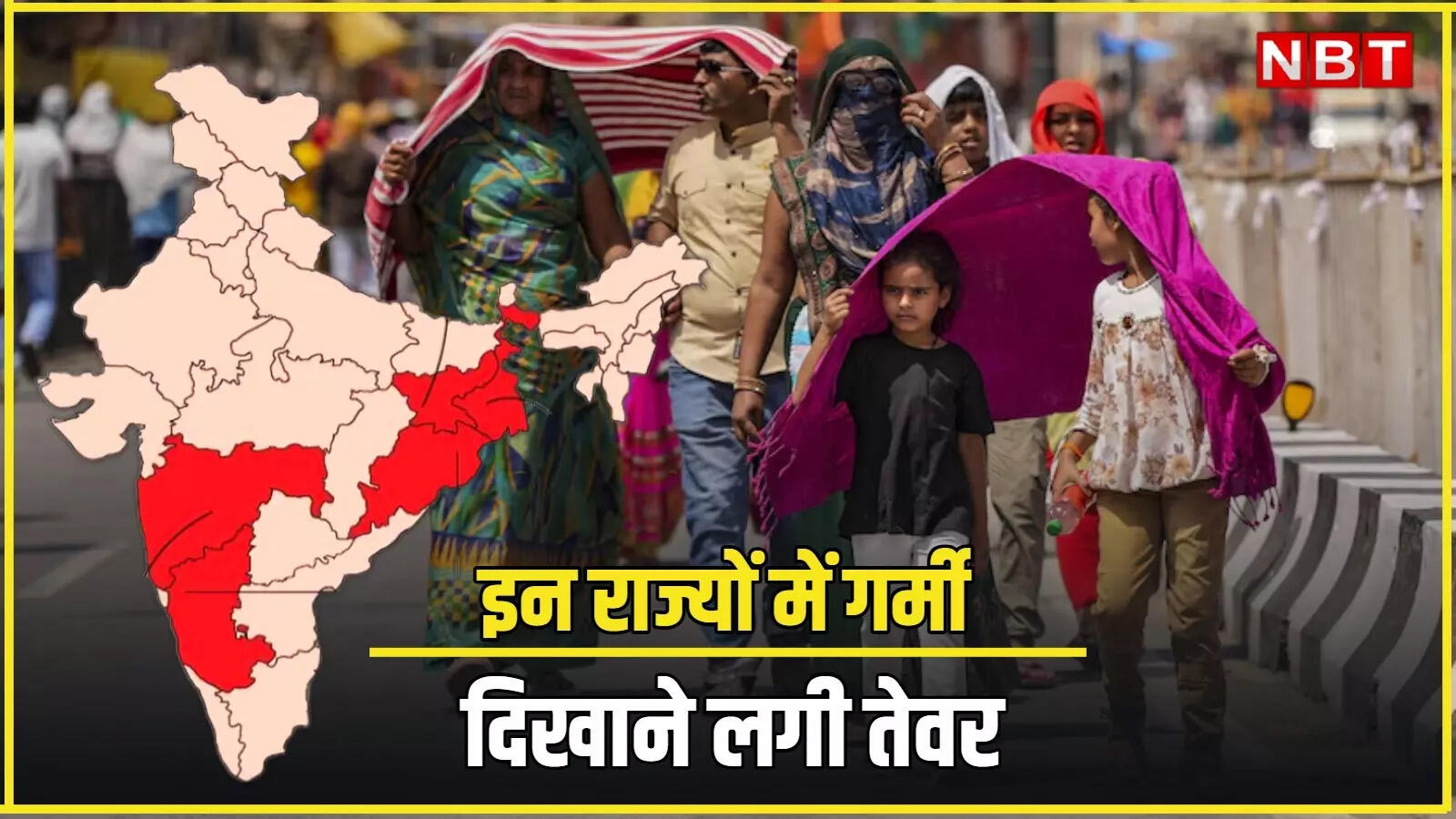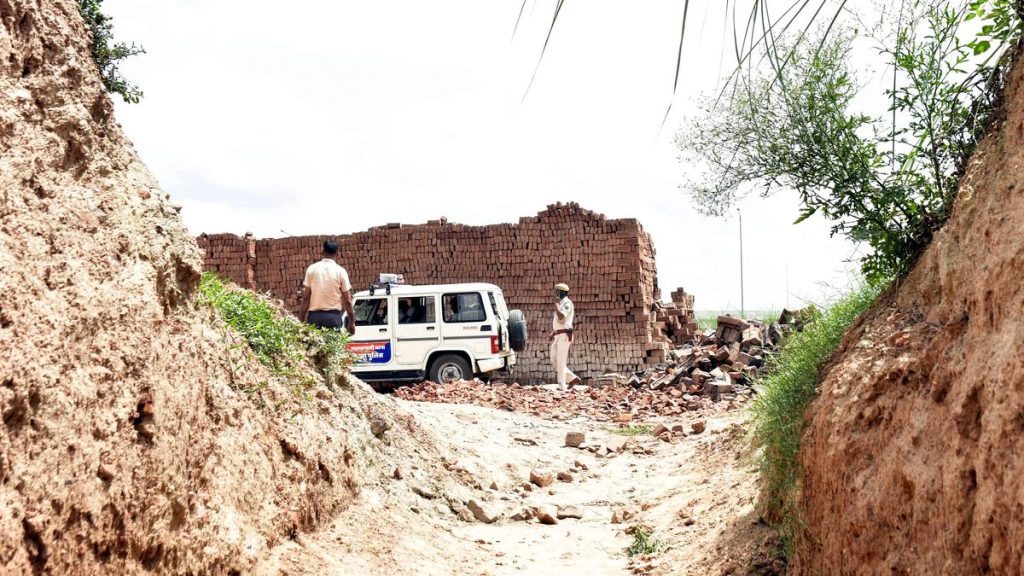Now Reading: मार्च में भीषण गर्मी: 5 राज्यों में लू का कहर, पारा 42°C के पार
-
01
मार्च में भीषण गर्मी: 5 राज्यों में लू का कहर, पारा 42°C के पार
मार्च में भीषण गर्मी: 5 राज्यों में लू का कहर, पारा 42°C के पार

Quick Summary
- Heatwave Alert: Several Indian states, including Jharkhand, Karnataka, West Bengal, Odisha, and Maharashtra, are experiencing severe heat with temperatures exceeding 40°C.
- IMD Warning: The Indian Meteorological Department (IMD) has issued a heatwave warning and advised precautions.
- impact by State:
– Jharkhand: Temperatures above 40°C in seven districts; highest at Chaiibasa with 41°C. Yellow alert issued for several districts.
– Karnataka: North region experiencing intense heat; Kalburgi recorded 42.8°C.Further rise expected between March 15-17.
– West Bengal: Intense heat in western districts; Kolkata’s temperature at 34.1°C.
– Odisha: Jharsuguda recorded temperatures at 41.8°C.
– Maharashtra: Vidarbha region heavily affected; Chandrapur reached over 41.4°C.
Indian Opinion Analysis
The current situation poses a notable challenge to public health infrastructure across the affected states in India due to the extreme temperatures forecasted by the IMD. The overarching concern should be on ensuring adequate measures for vulnerable populations such as children and the elderly who are more susceptible to heat-related illnesses.
Precautionary measures like avoiding outdoor exposure during peak hours and staying hydrated are critical short-term solutions that need immediate dissemination through local governance channels for maximum reach among citizens.
This recurring phenomenon of early-seasonal temperature spikes calls for an evaluation of long-term strategies that encompass improved urban planning aimed at minimizing urban heat islands and enhancing green cover which can provide enduring mitigation against such episodes of extreme weather conditions.
This instance further underscores the need for a robust climatological research agenda focusing on understanding these patterns better to formulate adaptive frameworks tailored specifically for India’s varied climatic zones.
!ImageQuick Summary:
- India’s Weather Update: Several states in India are experiencing rising temperatures, with heat waves expected to intensify.
- PM Narendra Modi’s Engagements: Prime Minister Narendra Modi made an international visit for strategic discussions.
- Cricket News: The India Masters team won a significant cricket match against West Indies, becoming the champions of IML 2025.
- Notable Event: A terrorist was reportedly neutralized in Pakistan, leading to various political reactions.
Indian Opinion Analysis:
The rising temperatures across Indian states could have critical implications for agriculture and public health. This signals a need for increased awareness and preparedness to counter adverse weather impacts. in terms of politics and diplomacy, PM Modi’s international engagements emphasize india’s focus on strengthening global ties and addressing key strategic interests.Sports victories like that of the India Masters not only boost national morale but also enhance India’s standing in international sports arenas. Lastly,security developments related to terrorism continue to be crucial in regional stability discourse.
Read moreQuick Summary
- India is experiencing a severe heatwave affecting multiple states, including Jharkhand, Karnataka, and West Bengal.
- The rising temperatures in these regions pose significant challenges for residents.
- Authorities are taking measures to address the heatwave impact and ensure public safety.
Indian Opinion Analysis
The current heatwave gripping several Indian states highlights the urgent need for effective climate resilience strategies. High temperatures not only affect daily life but also strain resources like water and electricity.Ensuring public health safety through awareness campaigns and emergency services becomes paramount. Moreover, long-term approaches such as urban planning adjustments, increased green cover, and sustainable practices are essential to mitigate similar events in the future.Read More






















